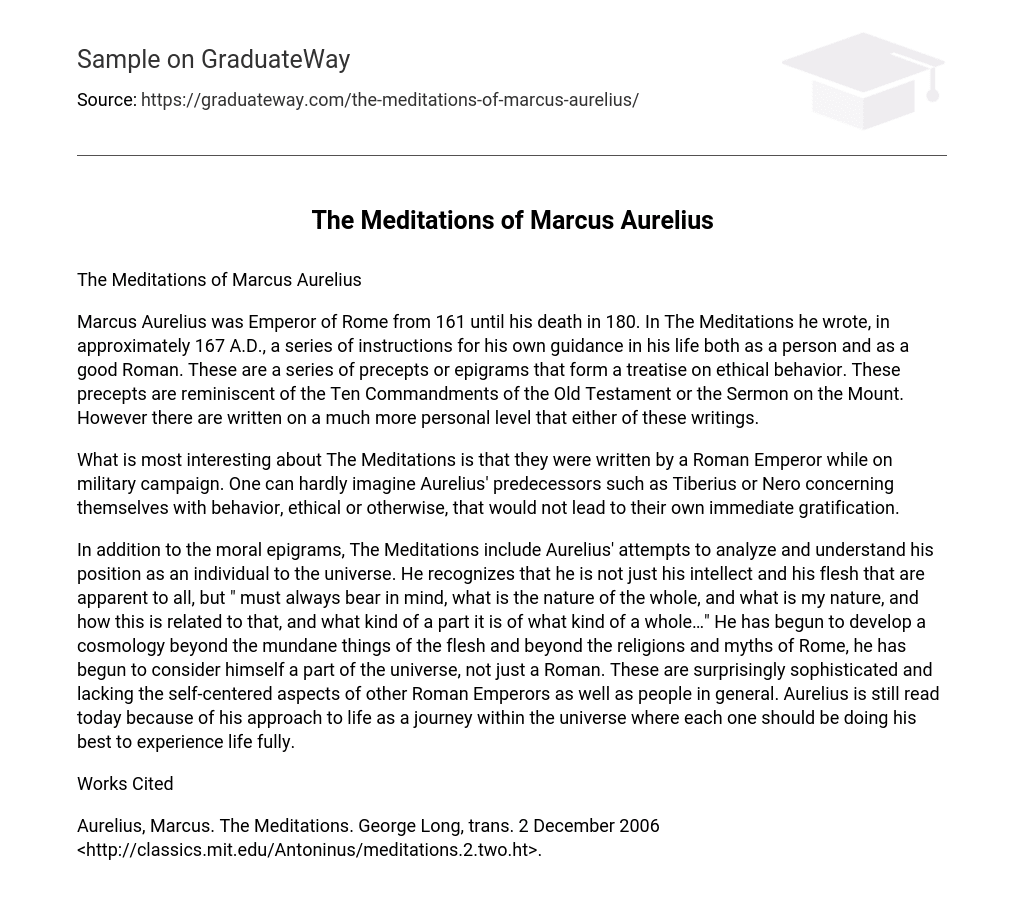Marcus Aurelius was Emperor of Rome from 161 until his death in 180. In The Meditations he wrote, in approximately 167 A.D., a series of instructions for his own guidance in his life both as a person and as a good Roman. These are a series of precepts or epigrams that form a treatise on ethical behavior. These precepts are reminiscent of the Ten Commandments of the Old Testament or the Sermon on the Mount. However there are written on a much more personal level that either of these writings.
What is most interesting about The Meditations is that they were written by a Roman Emperor while on military campaign. One can hardly imagine Aurelius’ predecessors such as Tiberius or Nero concerning themselves with behavior, ethical or otherwise, that would not lead to their own immediate gratification.
In addition to the moral epigrams, The Meditations include Aurelius’ attempts to analyze and understand his position as an individual to the universe. He recognizes that he is not just his intellect and his flesh that are apparent to all, but ” must always bear in mind, what is the nature of the whole, and what is my nature, and how this is related to that, and what kind of a part it is of what kind of a whole…” He has begun to develop a cosmology beyond the mundane things of the flesh and beyond the religions and myths of Rome, he has begun to consider himself a part of the universe, not just a Roman. These are surprisingly sophisticated and lacking the self-centered aspects of other Roman Emperors as well as people in general. Aurelius is still read today because of his approach to life as a journey within the universe where each one should be doing his best to experience life fully.
Works Cited
Aurelius, Marcus. The Meditations. George Long, trans. 2 December 2006 <http://classics.mit.edu/Antoninus/meditations.2.two.ht>.





